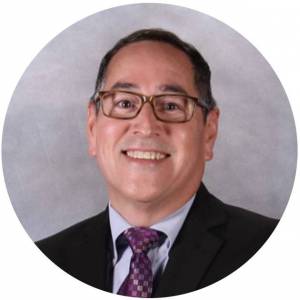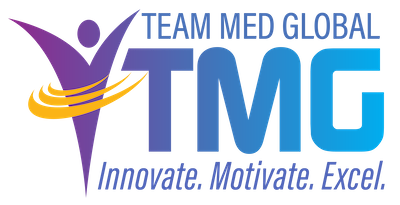 When John Pastrano, CPCS®, CPMSM®, BBA started working part-time in a local Texas hospital’s quality department, he was taking a class to learn a brand-new software program called Excel. The executive secretary in charge of credentialing had a lightbulb moment and asked Pastrano if he could leverage his software knowledge to create a quality profile. “I created a template, and when The Joint Commission surveyed the hospital, they loved the profile form,” he recalls. “We received a letter of recommendation from The Joint Commission, and the next day we received a notice that the hospital had been sold.”
When John Pastrano, CPCS®, CPMSM®, BBA started working part-time in a local Texas hospital’s quality department, he was taking a class to learn a brand-new software program called Excel. The executive secretary in charge of credentialing had a lightbulb moment and asked Pastrano if he could leverage his software knowledge to create a quality profile. “I created a template, and when The Joint Commission surveyed the hospital, they loved the profile form,” he recalls. “We received a letter of recommendation from The Joint Commission, and the next day we received a notice that the hospital had been sold.”
Though Pastrano was convinced that he’d soon be out of a job, when his supervisor took a position at a sister hospital, she brought Pastrano with her. There, the quality staff and medical staff services worked side-by-side. When the person responsible for credentialing resigned, the hospital CEO asked Pastrano to step up. “These were the olden days when we were using IBM Selectric typewriters,” Pastrano says with a laugh. “Everything was on a Rolodex with expiration dates written in pencil, and she was six months behind.”
Pastrano embraced this challenge. “I took it and ran with it, and in the process found my passion – credentialing,” he says.
Over the years, Pastrano has worked his way up the chain of medical staff services. He served as director of medical staff services, and then moved up to administrative director at Centennial Medical Center. He created a credentials verification organization, and directed the CVO at Tenet Healthcare. In 2020, Pastrano accepted a position as system director for CHRISTUS Health. “They’d already created a CVO and looked to me to refine it,” he says. “This wasn’t my first rodeo, so it’s been smooth sailing. I’ve been fortunate to have been able to follow my passion throughout my career.”
Finding Community

John in Seward, Alaska
While finding his professional home, John Pastrano also found a home with his fellow professionals. He befriended those working in credentialing at nearby hospitals, and became involved in the Greater Houston Society for Medical Staff Services and the Texas Society for Medical Staff Services. Next, Pastrano ran for NAMSS Director-at-Large in 2006, and served in that position from 2007 to 2009. “It was an honor to be elected,” he says. “From there, I decided to go up the chain, moving from treasurer to secretary, and eventually to becoming the only male NAMSS president in 2014.”
Pastrano treasures the friendships he’s developed with others in the field. At the NAMSS 2017 conference in Colorado, Pastrano and two colleagues enjoyed what Pastrano calls a “serendipitous” dinner. “I mentioned that the state association had asked me to speak,” he recalls. “One friend said, ‘Me, too,’ and the other friend said, ‘Me, too.’” That ignited a spark that became Southern Belles and Beau Speakers Bureau. “It’s great to work together with friends and colleagues and collaborate on different topics,” he says.
Glancing Back and Looking Ahead
Looking back on lessons learned over the course of his career, John Pastrano says, “I wish I would have known to use my voice more and share my knowledge.” He notes that, early on, those in credentialing often followed the lead of the CEO who wanted the doctor to be brought in as quickly as possible – even if the person wasn’t the best provider. “It’s important to be able to share red flags,” he says. “Let’s make a well-informed decision.”

John’s furbaby, Tino
Pastrano underscores that the MSP role is ever-changing. In the early days of the profession, the job title was administrative secretary and then medical staff secretary. “Now, MSPs are medical staff specialists, coordinators, and vice presidents of medical staff affairs,” he says. “The profession has grown, and we have a seat at the table and participate in discussions about our healthcare systems.”
He also sees a shift in the future of credentialing, with an increasing number of healthcare systems creating internal credentialing verification organizations. “They’re looking for that efficiency throughout the credentialing process,” he says. “CVOs ensure that verifications and the approval process are consistent, which in turn helps mitigate malpractice litigation.”
Pastrano also shares the importance of becoming a servant leader. “Although we need to recognize that we’re forever learning and are always students, we must also be servant leaders,” he says. “We must see what’s best for others or for the health system to ensure that the mission and vision are met.”
At Home and Abroad

John’s chihuahua, Spencer
John Pastrano’s service extends to his neighborhood civic club and helping to place foster pets. He has a special place in his heart for Tino and Spencer, his two chihuahuas. “Tino found me,” he says. “I was working on my roof and he was just there.” When no one in the neighborhood claimed the long-legged chihuahua, Tino found his forever home. Pastrano says, “I couldn’t let Tino be home by himself, so I adopted a foster chihuahua and now they’re best of buddies.”
If credentialing is Pastrano’s professional passion, his personal passion is learning about other cultures. He’s traveled extensively in Europe, Australia, and Africa. On his fiftieth birthday, Pastrano woke up to a surprise – hot air ballooning on the Serengeti. He looks forward to traveling back to Northern Italy, where his extended family resides.
Over the course of his career, John Pastrano has found community, created community, and maintained his sense of adventure. He has demonstrated the combination of flexibility, fearlessness in the face of challenges, and a quest for excellence that are the hallmarks of success for MSPs.
